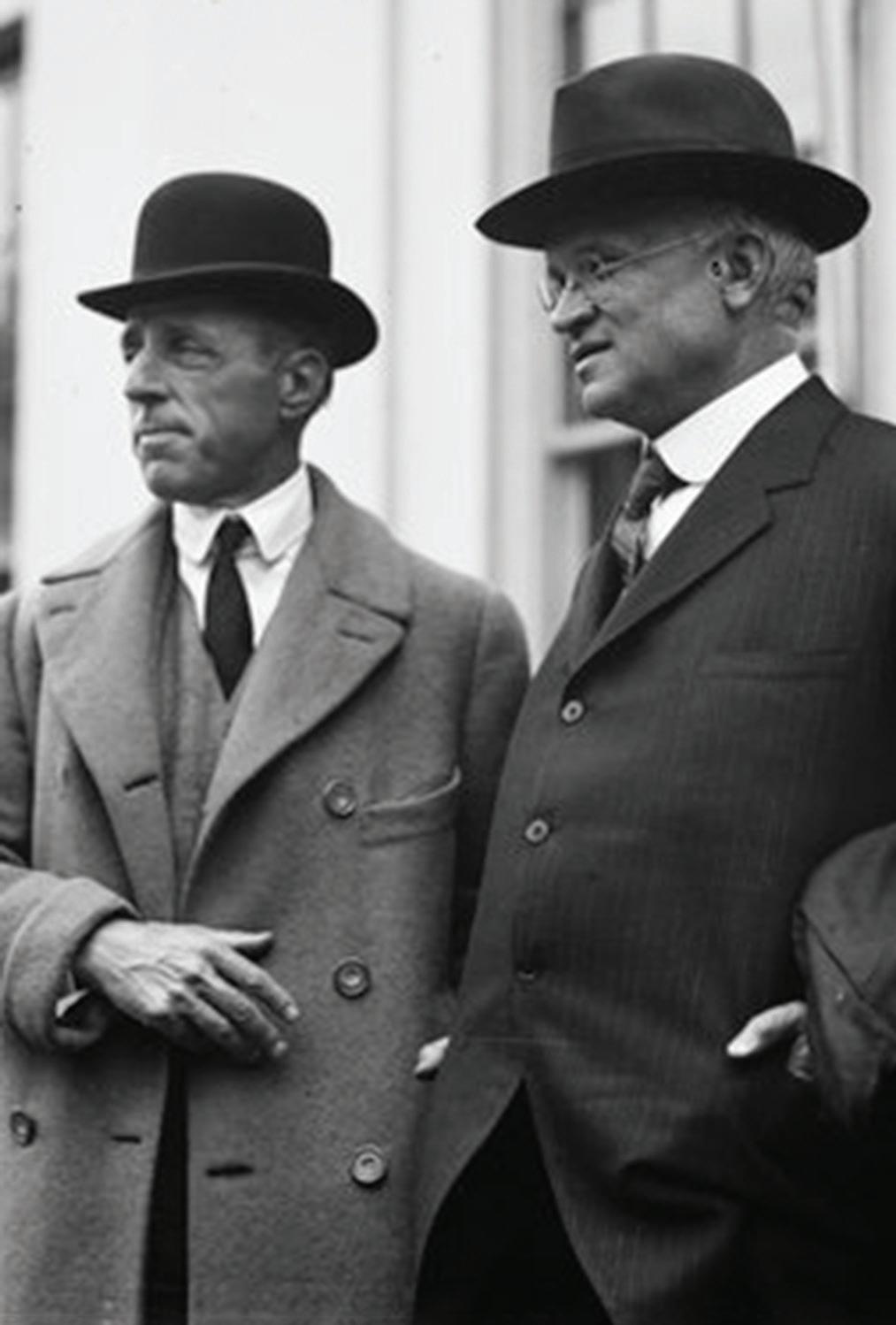
4 minute read
Sinclair Broadcasting Group
Sinclair Broadcasting Group by Audrey Erickson
For decades, local radio and television stations have kept communities abreast of the happenings in their own backyard, from local events to politics, and even the occasional scandal. While in some ways local news promotes unity and closeness in a town, it can also be a way to normalize and amplify the community’s values, as we see in the world of Tuna. The echo chamber phenomenon—in which one listens to a small group of people who share their views, making it seem like those opinions are held by the majority—can have a dangerous effect on those who listen to one news source alone. Furthermore, news stations are not all created equal; with private owners, advertisers, and sponsors holding influence, what we may think of as factbased and politically-neutral news is actually considerably swayed—and sometimes even fabricated—by those who pay for it. Such is the case with Sinclair Broadcast Group.
The second-largest television station operator, Sinclair has been around (under different names) since the 1970s. They currently own and operate 193 local news stations, mostly concentrated in the South and in the Midwest, and have strong ties to national networks, such as Fox, ABC, and CBS. The company is decidedly right-leaning, and controversially has let their political beliefs impact their programming choices.
During Trump’s presidency, the company came under fire for a number of their programming decisions, including the choice to run antimedia promotional segments through their stations’ various news anchors. In these segments, viewers were discouraged from trusting in or engaging with other news outlets because, anchors cautioned, they didn’t factcheck their stories and therefore threatened democracy. Not only were these ads insidious for their statements, but by using local anchors whom audiences trust and feel attached to, the broadcasting giant sought to make their proTrump, anti-media messaging have a personal and organic touch to it. This was done in hopes
Vintage Car radio dial. that Sinclair’s position would be believed by the 40% of American households they were reaching at the time.
Unfortunately, Sinclair’s sneaky move was not a standalone one. The broadcasting group continues to try to misinform audiences and sway their political leanings with cherry-picked news stories and narratives. A study from political scientists Gregory Martin and Josh McCrain shows that local stations bought by Sinclair rapidly change their focus from local news to national news, covering the news with a more conservative take. With Sinclair’s wide reach, and the number of Americans who rely on TV stations as their main source of news (about 68%, according to Pew Research Center), this biased reporting has damaging effects. Sinclair creates a skewed perception of reality and majority-opinion for its viewers, taking advantage of the presumed credibility of news to mislead them.
The shift in focus from local to national coverage is also dangerous. At first glance, it could be seen as innocuous, or even positive. Don’t national events have a larger impact on the country? Shouldn’t we know what’s going on outside of our town? While
national politics should be followed closely, the risk of under-covering local news is that it prevents the public from having access to information with which they could take action. By showing mostly national news (often with an outraged or defeated tone), a degree of apathy emerges from viewers because the issues feel too big and out of their control to do anything about; it’s difficult to stay engaged when every upsetting news story increases the burnout and fatigue of its viewership. In turn, Americans are becoming more passive in their political engagement because it’s hard to know where to start. By showing local news, citizens can feel encouraged and empowered to participate in their local politics; according to journalist and visiting Northwestern University professor Penny Muse Abernathy, local news “builds social cohesion, encourages political participation, and improves the efficiency and decision-making of local and state government.” As this can have a ripple effect to wider-reaching political landscapes, it is against the interest of corporations to provide their audiences with information that can be turned into action. Local news stations have been a part of community structure as long as broadcasting technology has been around, but it is important to look into where your information is coming from, and what entities are paying to have their messages promoted. According to Alexios Mantzarlis, founding director of the International Fact-Checking Network, and Melissa Zimdars, assistant professor of communication and media at Merrimack College, there are a few low-effort things you can do to feel more confident that you are consuming news critically: find multiple reputable sources for a story; make sure there are quotes from individuals with appropriate experience or credentials to weigh in; and find the “About Us” or staffing page of the news distributor website to see who is in leadership and what outside ties they may have. While A Tuna Christmas showcases local news that is satirically uninformative, staying current with what’s happening in your community can teach you what the most urgent issues are, and how you can help.

a loCal newsCaster rePorting For tV.










